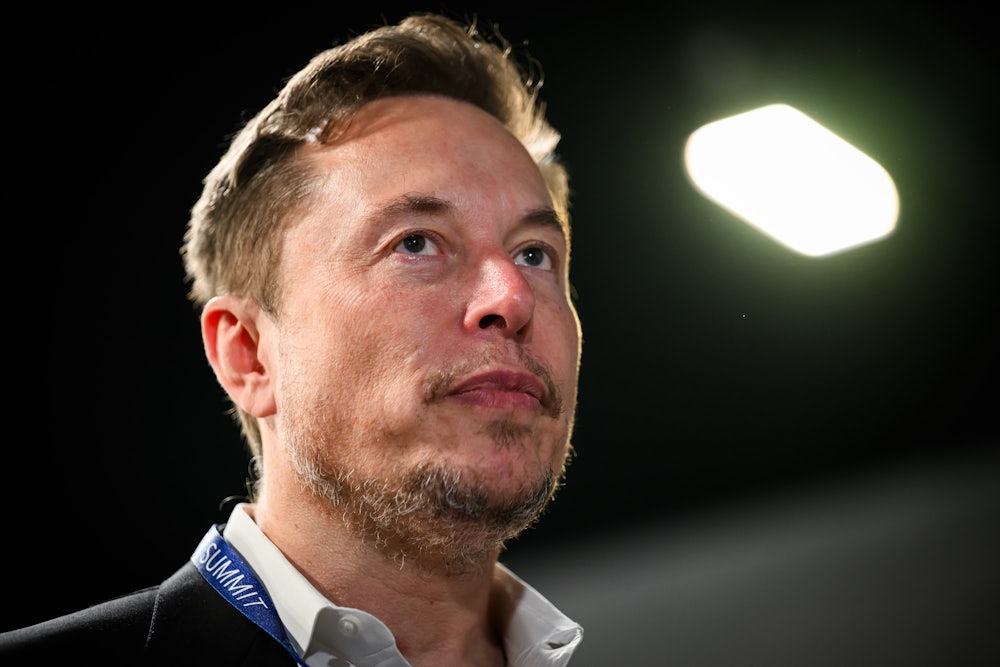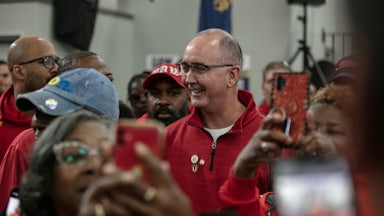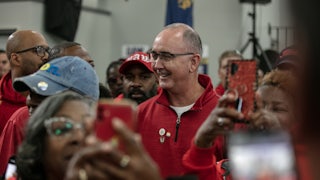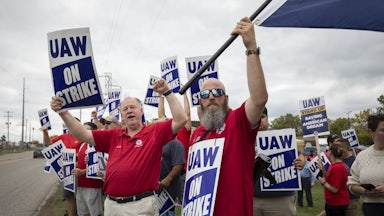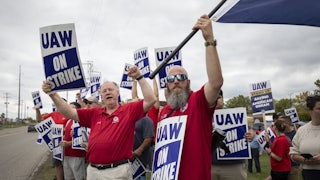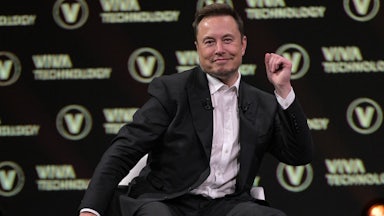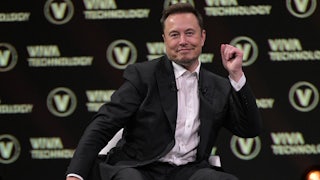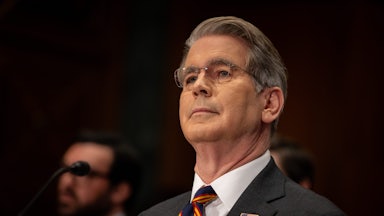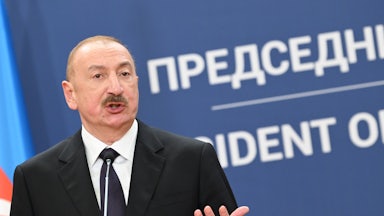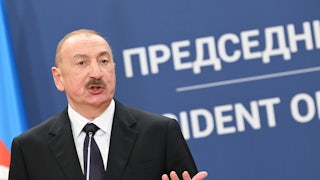Tesla doesn’t have very many employees in Sweden, but it faces a growing headache there. Tesla mechanics have opted to join IF Metall, a union that represents workers in the country’s automotive sector. Tesla’s Swedish subsidiary, TM Sweden, has refused to sign onto a customary collective bargaining agreement with IF Metall that would cover its roughly 130 employees in the country. In response, mechanics represented by the union walked off the job at the end of last month. Around 470 IF Metall mechanics who service Teslas across the country have since then refused to work on the cars.*
On Tuesday, dockworkers represented by the Swedish Transport Workers Union began refusing to unload Teslas at ports in Malmö, Gothenburg, Trelleborg, and Södertälje; if no agreement is reached by November 17, they’ll do the same at every port in the country. Norway’s transportation union is considering similar action. Electrical workers also vow to stop, on November 17, serving energy infrastructure that serves Tesla’s 10 workshops and 213 charging stations. “If something breaks, no one will fix it,” the union wrote in its announcement of the solidarity action. Building maintenance will refuse to clean Tesla workshops too. If Tesla is still balking on a deal by November 20, postal workers will stop delivering letters and packages addressed to the company. Stockholm’s largest taxi company has stopped buying Teslas for its fleet.
The stakes in this showdown between Tesla and Swedish unions are high for both sides. Tesla’s anti-union stance has been a core part of the electric vehicle manufacturer’s identity and business model. Its commitment to maintaining that position as it expands to countries with much stronger labor protections is now being challenged in Sweden and elsewhere. A loss for Tesla on this front could bode well for the United Auto Workers in the United States. Fresh off a now-likely victory against GM, Ford, and Stellantis, UAW has pledged to pour resources into unionizing Tesla and other nonunion carmakers. “When we return to the bargaining table in 2028, it won’t just be with a Big Three, but with a Big Five or Big Six,” UAW President Shawn Fain said last week. On the flip side, Tesla being able to stay stridently anti-union could set a chilling precedent for both E.V.s and any company that wants to ignore labor market rules in the countries where they set up shop.
“The green transition is vital. But it is also important that newly started innovative companies that establish themselves in Sweden follow the rules that exist in the labor market,” IF Metall argues on its website. “Tesla is a company that contributes to the green transition. Now, of course, we hope that they will be able to provide sustainable conditions for their employees as well.”
Sweden may be one of the toughest places on earth to break labor law precedents. Ninety percent of Swedish workers are covered by collective bargaining agreements. Labor relations in Sweden are governed primarily via long-standing norms between union and employee federations, which periodically negotiate deals relating to sector-wide wages, working conditions, pensions, and vacation time. Employers have an interest in making sure these standards are maintained, as well, and companies that skirt them are seen as engaging in unfair competition. There’s no legal requirement, however, for Tesla to sign an agreement with IF Metall.
“Politicians don’t really want to get involved, and unions and employers don’t want politicians to micromanage this sort of thing,” says Max Jerneck, an analyst for the left-leaning Swedish think tank Katalys. “That means that when someone comes in from the outside and doesn’t have any concern about these established practices, they can test the limits of what’s allowed.”
Reporting since the start of the strike has shown that Tesla may be going to great lengths to do just that. The Swedish news outlet Dagens Arbete revealed last week that Tesla management in the country is willing to bring in workers from other parts of the country to keep repair shops up and running while workers are on strike. Screenshots from a virtual chat between Tesla executives obtained by Dagens Arbete show managers pledging to send in “support,” i.e., strikebreakers, to units affected by the strikes. A Tesla communications expert contacted by the outlet was seemingly unaware that doing so would constitute strikebreaking, which is highly unusual in Sweden.
A few days after that report was published, Dagens Arbete additionally reported that workers around the country had seen strikebreakers being ferried to shops participating in the work stoppage. “Tesla has brought people here. There are strikebreakers working inside the premises right now. But we don’t know who they are and where they came from,” said Carola Andersson, chairman of IF Metall in Umeå, who also called it a “a new low-water mark for Tesla.” (The article was originally published in Swedish. This translation is from Google Translate.)
Tesla doesn’t make any cars in Sweden but does sell a decent number of them there. The Model Y is among the best-selling models in the country, where plug-in hybrids and E.V.s account for more than 63 percent of new vehicle registrations. Jerneck thinks it’s possible that Tesla could opt to leave Sweden entirely rather than concede to the strikers’ demands.
That would be harder in Germany, which could soon play host to a similar fight. Workers at a Tesla Gigafactory there have opted to join IG Metall, Europe’s largest manufacturing union. Tesla has so far refused to sign onto wage agreements that are standard in the country’s massive automotive sector. “You need to be careful,” IG Metall president Christiane Benner said of Musk in an interview with Bloomberg. “The rules of the game are different here.” Last month, at least 1,000 Tesla staff showed up to the Tesla Gigafactory—which employs around 12,000 people—to level familiar-sounding complaints about unsafe working conditions, staffing shortages, and extreme workloads.
According to IF Metall’s contract secretary, Veli-Pekka Säikkälä, Tesla’s Swedish subsidiary has argued in negotiations that it’ll be up to Tesla HQ to decide whether they reach a deal or not. Given Tesla CEO Elon Musk’s penchant for weighing in on Tesla labor disputes on X, formerly known as Twitter, it’s not impossible that his followers there will learn his decision on Swedish labor unrest before the union does.
* This language has been updated to clarify that not all Tesla employees in Sweden have joined the union.
